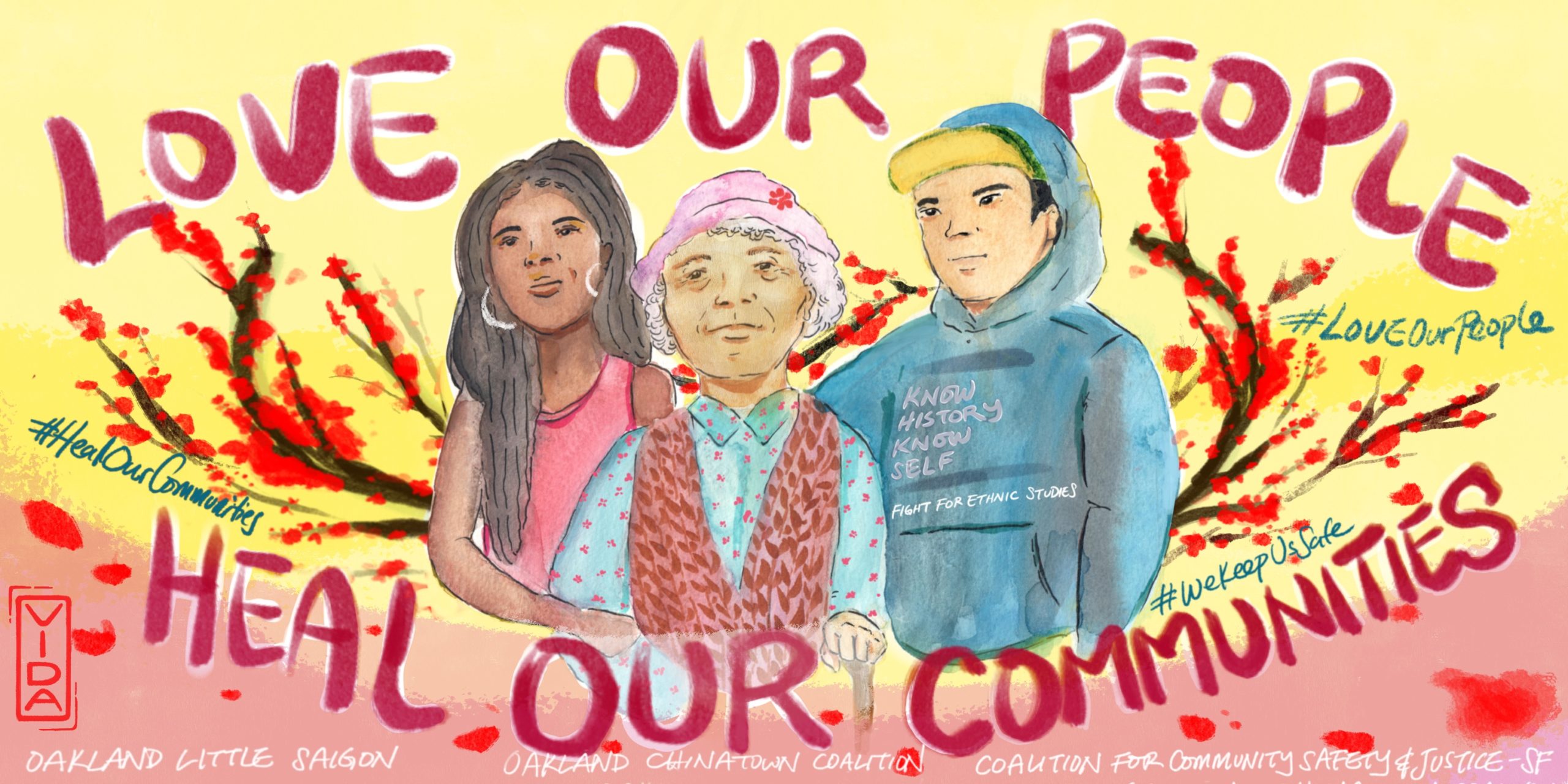In April 2021, SFF chatted with Alvina Wong, Campaign Organizing Director at Asian Pacific Environmental Network (APEN), which received a Rapid Response Fund grant in February. Below are highlights from the conversation.
SFF: Why was APEN looking for emergency funding?
Alvina: When President Biden got elected, we expected a possible anti-China backlash related to economic issues. But we didn’t anticipate this much anti-Asian violence, including horrific crimes against Asian women and the elderly. Some of the attacks have been crimes of opportunity, and others have been related to Asians being blamed for the pandemic and the economic crisis.
SFF: How important was it for APEN to get funding so quickly?
Alvina: We needed to make sure our communities had a good sense of what was going on, especially with so much misinformation out there. In our work, we often have to cover upfront design and printing costs, which means we dig into our budgets for other work and hope to backfill those funds later. Responding to a surge in anti-Asian violence wasn’t something we planned or budgeted for, but we had to act quickly.
SFF: What was the application process like?
Alvina: The proposal and budget were easy to pull together, which allowed us to focus on the work and not the fundraising. To highlight the cross-cultural work, we applied as a group of eight organizations, including APEN, Courage, Community United for Restorative Youth Justice, Oakland Trybe, Oakland Vietnamese Chamber of Commerce, AYPAL, the Anti-Police Terror Project, and Community Ready Corps. The coalition structure underlined how communities show up for each other.
SFF: What work did the grant enable?
Alvina: Beyond covering the material costs for our rallies and translation work, this funding also allowed us to hire communications consultants to support narrative work, especially in ethnic media outlets, which weren’t reporting on these issues in a nuanced way. We were also able to add a volunteer arm to our Chinatown ambassador program, which coordinates with community foot patrols as an alternative to policing. Our coalition organized community safety trainings, healing circles, and two large events in Oakland: the “Love our People” event in February, and a solidarity vigil in March.
SFF: Why is it important for donors to support the Rapid Response Fund?
Alvina: You never know when a crisis is going to happen and how it will impact communities. When they happen, organizations don’t have time to figure out extensive grant proposals. Rapid Response Fund dollars gave us an immediate cushion — the funding helped absorb the cost of emergency work without impacting our long-term work. Without this grant, we would’ve still done the work, but it wouldn’t have been as effective or sustainable.


